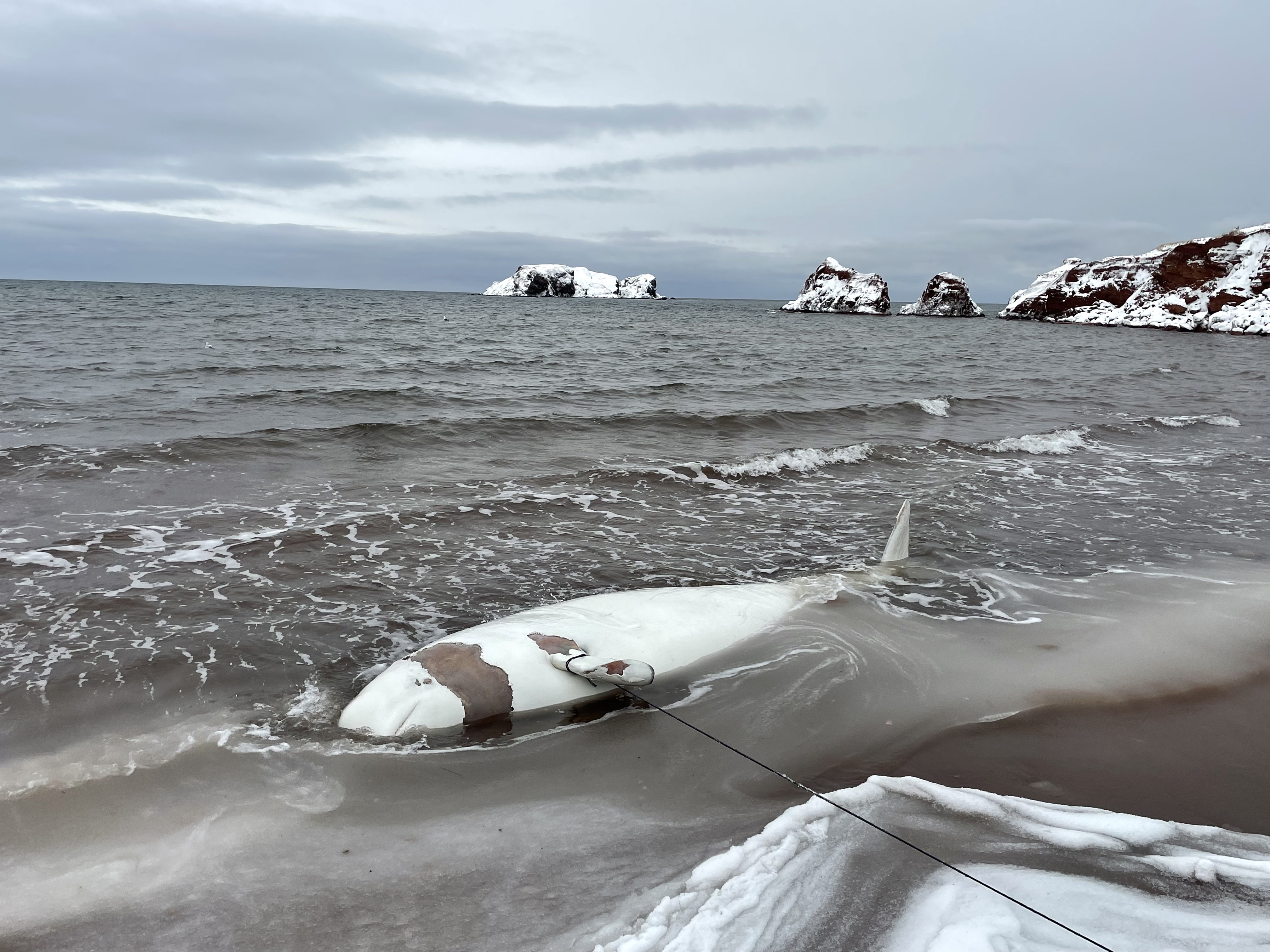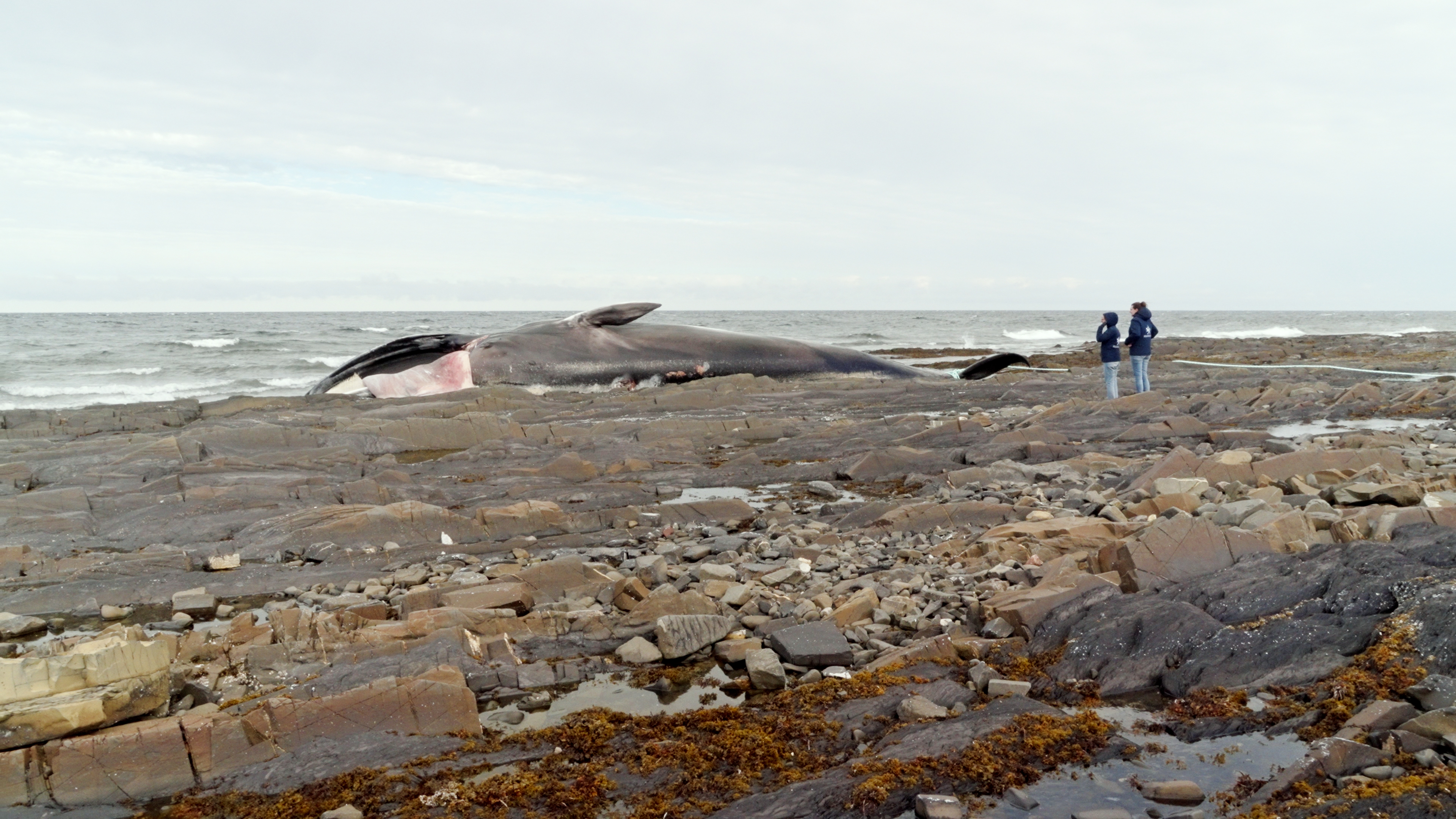After the right whale found dead off the coast of Percé this past June 24, two more carcasses of the same species have recently been reported: one off of Gaspé seen on July 9 and another 22 nautical miles from the Magdalen Islands, on July 13. The latter eventually washed upon on a beach.
Gaspé
Aerial images taken during a patrol in the Gaspé region by Fisheries and Oceans Canada were forwarded to Marine Mammal Emergencies. A whale in an advanced state of decomposition can be seen, with large pectoral fins, massive head and plump body. This whale has not been seen since.
Magdalen Islands
August 2, 2015: tourists reported to Marine Mammal Emergencies team the presence of a large decomposed carcass on a beach in the Magdalen Islands. Photos are sent but due to the position of the animal and its advanced state of decomposition, it is difficult to confirm whether or not it is a North Atlantic right whale. Photos are also submitted to the New England Aquarium team, which successfully determines that the carcass is in fact that of a right whale. A few days later, the team also confirms that it is probably the same individual as the one that had been observed adrift: female #3923. A bone sample was taken and sent to Trent University in Ontario for DNA testing.
July 16, 2015: Three days ago, the crew on ÉcoMaris’ sailboat Roter Sand, navigating a few tens of miles off of the Magdalen Islands, makes this encounter. The whale floating in front of the navigators is intact, but its black skin is virtually absent. Photos are sent to right whale specialists; the team from the New England Aquarium succeeded in identifying it, almost by miracle! It is #3923, a young female born in 2009, i.e. 6 years old. The last time she was seen alive was December 27, 2014. Her carcass was not seen again since the first report. This situation entails a host of considerable challenges. Researchers are eager to obtain samples from these carcasses at sea and gather as much information as possible on these incidents involving an endangered species. Fisheries and Oceans Canada specialists are currently modelling the trajectories of these two whales in order to relocate them, which will help develop offshore response plans with different teams, including fishery officers.
Should you spot any of these carcasses at sea or washed up on shore, please report your observation promptly by dialling 1-877-7baleine (1-877-722-5346).
Earlier this season off Percé
A dead right whale was found adrift off the coast of Percé on June 24, 2015. This whale was identified by researchers at the New England Aquarium: it was a female named Piper. Since the carcass was initially reported, the Quebec Marine Mammal Emergency Response Network has received a generous and prompt response from numerous collaborators: volunteers from Marine Mammals Emergencies, scientists from the eastern US seaboard and the Maritimes, fishermen and cruise operators. The scope of involvement is huge. Recovering this carcass for necropsy and retrieving the skeleton for educational purposes represented a colossal challenge! To learn more: Invaluable whale carcass found in the Gaspé.
To learn more:
Robert Michaud, GREMM President and Scientific Director, gives a talk about three incidents in which right whale carcasses were found in the St. Lawrence in recent weeks on Radio-Canada’s Bon pied, bonne heure! broadcast on July 21, 2015 (7:45 am).





